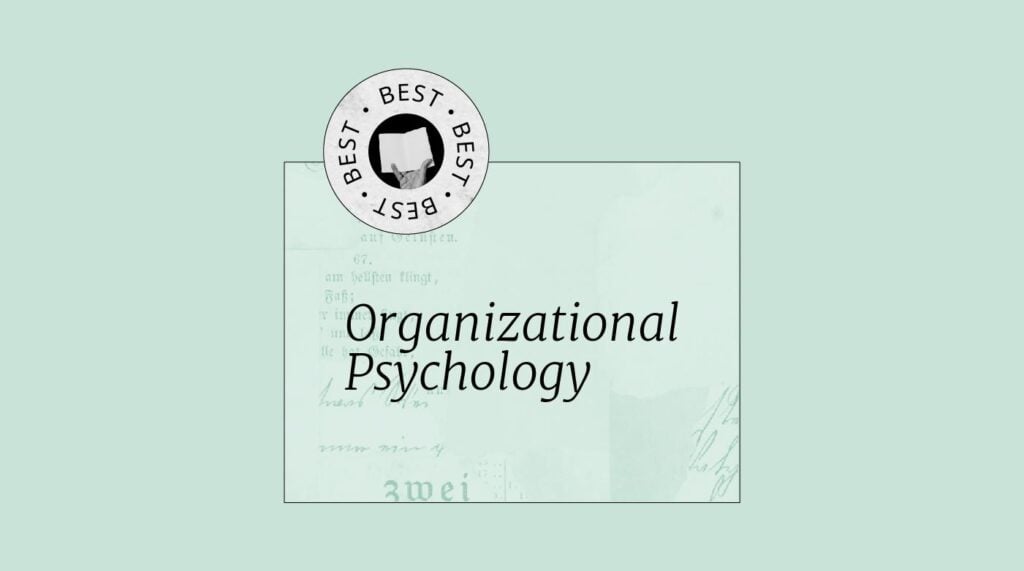Navigating the intricate world of organizational psychology can be overwhelming but, with the right resources, you can be at the forefront of managing people effectively.
Having immersed myself in countless organizational psychology books, from bestsellers to outliers, I've distilled the essence of what makes organizations tick. Whether you're an I/O psychologist or a professional aiming for organizational change, the books I recommend offer a blend of theory and practice, enriched with real-world examples.
Delve into cutting-edge research methods, get a practical guide on performance appraisal, or understand the nuances of training and development. And if you're on the go, consider diving into audiobooks in this niche. Remember, it's not just about reading; it's about applying psychology to work, ensuring you're equipped for the ever-evolving challenges of the modern workplace.
17 Best Organizational Psychology Books
Having read countless titles, I've handpicked these 17 organizational psychology books perfectly tailored to your needs.
- Work and Organizational Psychology by Sebastiaan Rothmann and Cary L. Cooper
- Industrial/Organizational Psychology: Understanding the Workplace by Paul Levy
- Industrial/Organizational Psychology: An Applied Approach by Michael G. Aamodt
- Work in the 21st Century: An Introduction to Industrial and Organizational Psychology by Jeffrey M. Conte and Frank J. Landy
- Self-Awareness (HBR Emotional Intelligence Series) by Harvard Business Review, Daniel Goleman, Robert Steven Kaplan, Susan David, and Tasha Eurich
- Industrial and Organizational Psychology: Research and Practice by Paul E. Spector
- The Non-Obvious Guide To Employee Engagement (For Millennials, Boomers & Everyone Else) by Maddie Grant and Jamie Notter
- Mastering Industrial-Organizational Psychology: Training Issues for Master's Level I-O Psychologists by Elizabeth L. Shoenfelt
- The Culture Map: Breaking Through the Invisible Boundaries of Global Business (Hardcover) by Erin Meyer
- Introduction to Industrial/Organizational Psychology by Ronald E. Riggio
- Organizational Culture and Leadership by Edgar H. Schein
- The Fearless Organization: Creating Psychological Safety in the Workplace for Learning, Innovation, and Growth by Amy C. Edmondson
- The Social Psychology of Organizations by Daniel Katz and Robert L. Kahn
- Positive Psychology in Business: 101 Workplace Ideas and Applications by Sarah Lewis
- The Wiley Blackwell Handbook of the Psychology of Occupational Safety and Workplace Health by Sharon Clarke, Tahira M. Probst, Frank W. Guldenmund, and Jonathan Passmore
- Ethics and Values in Industrial-Organizational Psychology by Joel Lefkowitz
- Personnel Psychology and Human Resources Management: A Reader for Students and Practitioners by Ivan T. Robertson and Cary Cooper
Overviews Of The 17 Best Organizational Psychology Books
Here’s a quick summary of each book, what you’ll learn, and why you should read it, plus a quote I like from the book. I added the author’s LinkedIn and other places to connect with them online.
1. Work and Organizational Psychology by Sebastiaan Rothmann and Cary L. Cooper
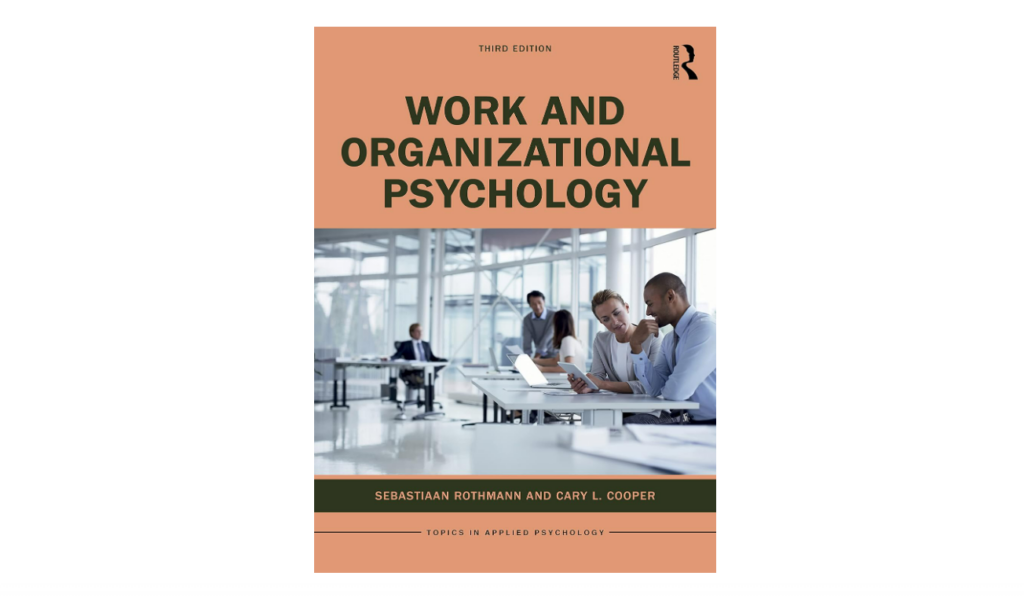
Summary:
Dive deep into the multifaceted world of organizational psychology with Rothmann and Cooper’s comprehensive guide. The book sheds light on both theory and applied practices, making it essential for those in the field.
What You'll Learn:
Gain insights into the core principles and theories of organizational psychology, learn effective strategies for enhancing workplace performance and well-being, and discover real-world applications and case studies to illustrate key concepts.
Why You Should Read It:
For a well-rounded perspective on the challenges and solutions in today's organizational landscape, this book stands out as an authoritative resource.
Quote From The Book:
"A successful organization is not just about strategy; it's about understanding the human element that drives it."
About The Author:
Sebastiaan Rothmann and Cary L. Cooper are renowned figures in the realm of organizational psychology. Connect with Sebastiaan Rothmann on LinkedIn and with Cary L. Cooper on LinkedIn and Twitter.
2. Industrial/Organizational Psychology: Understanding the Workplace by Paul Levy
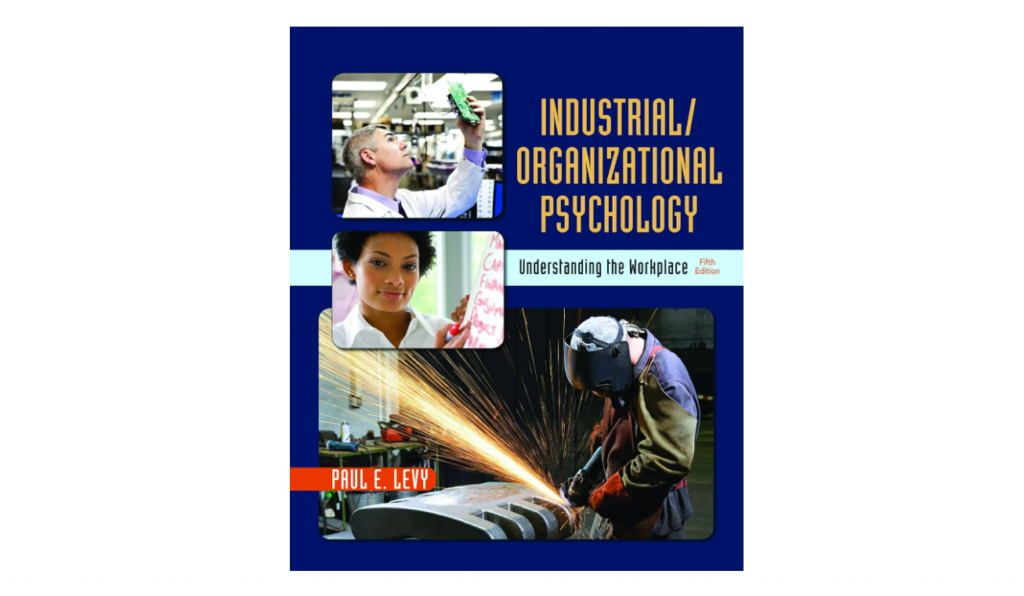
Summary:
Levy's work is an engaging exploration of the dynamics of the workplace. The book effectively blends essential theories with the latest research findings in the I/O psychology domain.
What You'll Learn:
Gain insight into workplace behavior and its underlying psychological mechanisms, learn how to leverage I/O psychology to foster a more productive and harmonious work environment, and understand contemporary challenges and how they're addressed using psychological principles.
Why You Should Read It:
To grasp the intricacies of the modern workplace and the psychological principles that guide it, Levy’s book is an invaluable resource.
Quote From The Book:
"The essence of a workplace is not its infrastructure, but the minds that inhabit it."
About The Author:
Paul Levy is a prominent voice in the field of Industrial/Organizational Psychology. Connect with him on Twitter and explore more about his works on his Amazon portfolio.
3. Industrial/Organizational Psychology: An Applied Approach by Michael G. Aamodt
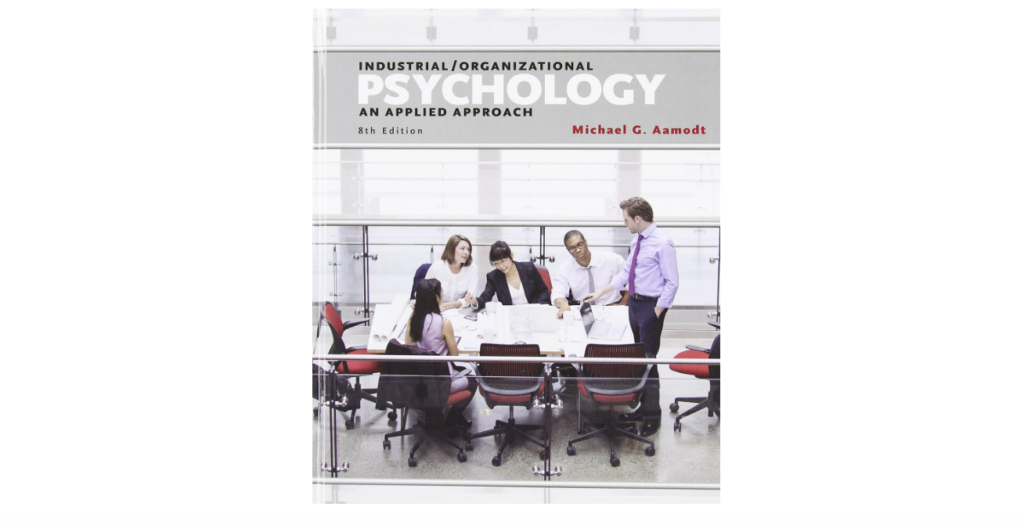
Summary:
Aamodt's book is a practical take on I/O psychology, offering actionable insights for both students and professionals. The book strikes a balance between foundational knowledge and current applications.
What You'll Learn:
Explore foundational theories and concepts in I/O psychology, get hands-on with practical tools and techniques for addressing common workplace issues, and learn to apply I/O psychology principles in real-world scenarios.
Why You Should Read It:
For those looking for a hands-on approach to I/O psychology that’s grounded in solid research, Aamodt’s book is a must-read.
Quote From The Book:
"Applied psychology is not just a subject to be studied, but a tool to reshape the world of work."
About The Author:
Michael G. Aamodt is a recognized authority in the field of applied psychology. For more on his expertise and contributions, connect with him on LinkedIn.
4. Work in the 21st Century: An Introduction to Industrial and Organizational Psychology by Jeffrey M. Conte and Frank J. Landy

Summary:
A modern exploration into the realm of I/O psychology, Conte and Landy’s work provides a detailed overview of the challenges and opportunities that today’s workplaces offer, contextualized for the 21st century.
What You'll Learn:
Understand the evolving nature of work in the digital age, delve into the psychological principles underpinning today's organizations, and grasp the emerging trends and issues in the world of I/O psychology.
Why You Should Read It:
For those aiming to stay ahead in the rapidly evolving work landscape, this book offers foundational knowledge and contemporary insights.
Quote From The Book:
"In the age of information, understanding human dynamics at work is more crucial than ever."
About The Author:
Jeffrey M. Conte and Frank J. Landy have been influential voices in industrial and organizational psychology. Connect with Jeffrey M. Conte on Twitter.
5. Self-Awareness (HBR Emotional Intelligence Series) by Harvard Business Review, Daniel Goleman, Robert Steven Kaplan, Susan David, and Tasha Eurich
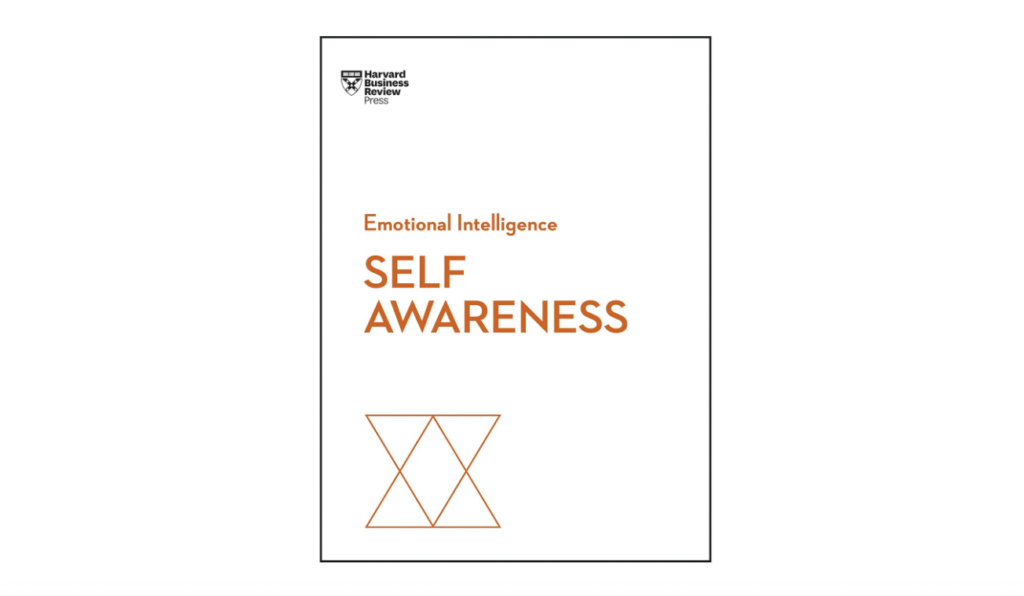
Summary:
Part of the acclaimed HBR Emotional Intelligence Series, this book focuses on the pivotal role of self-awareness in leadership and personal success, blending research-backed insights with practical advice.
What You'll Learn:
Discover the importance of self-awareness in leadership, the connection between self-awareness and effective decision-making, and strategies to enhance one's self-perception.
Why You Should Read It:
In a world emphasizing leadership and personal growth, understanding oneself is the cornerstone to navigating challenges and seizing opportunities.
Quote From The Book:
"True leadership begins with understanding oneself, a journey that leads to unparalleled impact."
About The Author:
The Harvard Business Review, along with contributing authors like Daniel Goleman, Robert Steven Kaplan, Susan David, and Tasha Eurich, brings a wealth of experience and research to the realm of emotional intelligence. Connect with Daniel Goleman on LinkedIn, Twitter, and his personal website. Engage with Robert Steven Kaplan on LinkedIn, Susan David on LinkedIn, and Tasha Eurich on LinkedIn and Twitter.
6. Industrial and Organizational Psychology: Research and Practice by Paul E. Spector
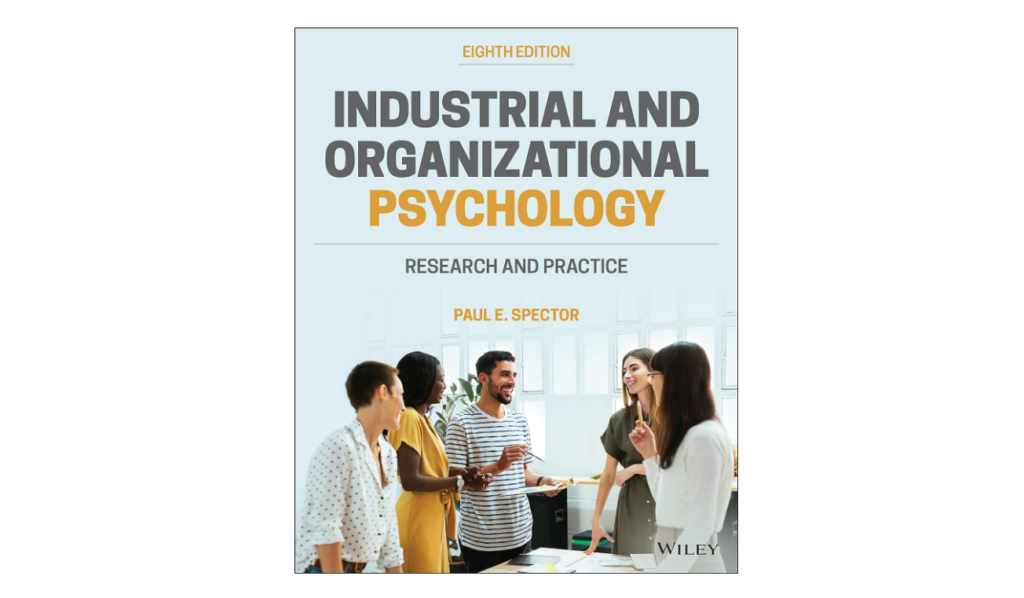
Summary:
Spector's book offers a comprehensive dive into the research and practices that define the field of I/O psychology, bridging the gap between academic research and its real-world applications.
What You'll Learn:
Explore in-depth research in I/O psychology, gain insights into practical applications in diverse organizational settings, and equip yourself with tools and methodologies to enhance workplace dynamics.
Why You Should Read It:
For students, professionals, and enthusiasts alike, this book stands as a masterclass in understanding and applying the principles of I/O psychology.
Quote From The Book:
"Beyond theories, the true essence of I/O psychology lies in its capacity to transform workplaces."
About The Author:
Paul E. Spector is a leading figure in industrial and organizational psychology. Dive deeper into his insights and connect with him on LinkedIn and his personal website.
7. The Non-Obvious Guide To Employee Engagement (For Millennials, Boomers & Everyone Else) by Maddie Grant and Jamie Notter

Summary:
Grant and Notter delve into the evolving landscape of employee engagement, shedding light on the nuanced differences across generations. This guide offers actionable strategies for fostering a cohesive and productive work environment.
What You'll Learn:
Understand the unique engagement needs of different generations, from Millennials to Boomers, and grasp effective strategies to boost engagement, morale, and productivity in the modern workplace.
Why You Should Read It:
In a diverse multi-generational workforce, understanding and catering to varied engagement needs is pivotal for organizational success.
Quote From The Book:
"Engagement is not a one-size-fits-all; it's about understanding, adapting, and thriving together."
About The Author:
Maddie Grant and Jamie Notter are experts in organizational development and workplace dynamics. Connect with Maddie Grant on LinkedIn and Jamie Notter on LinkedIn and Twitter.
8. Mastering Industrial-Organizational Psychology: Training Issues for Master's Level I-O Psychologists by Elizabeth L. Shoenfelt
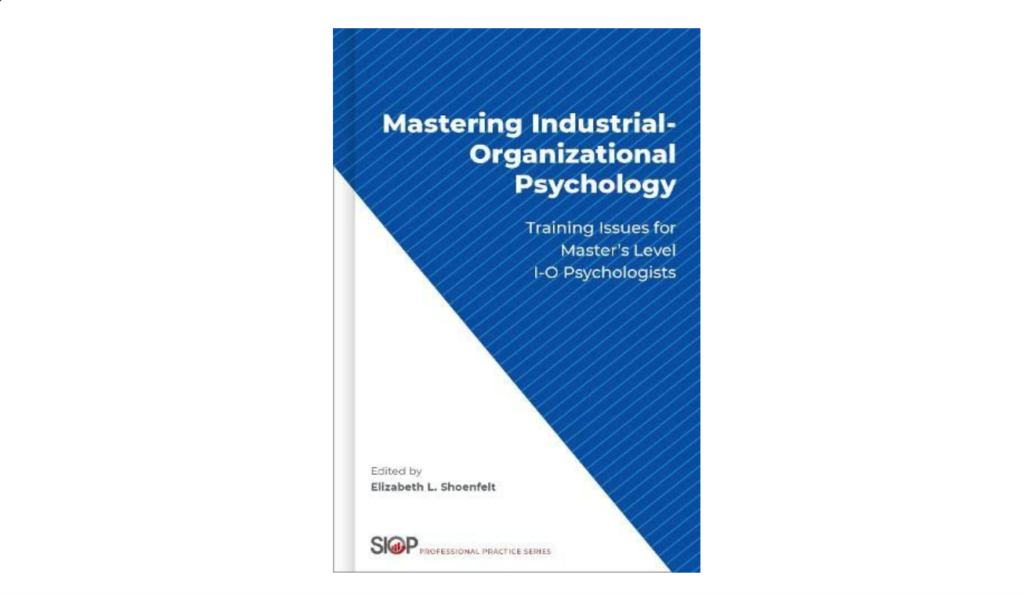
Summary:
Shoenfelt's work serves as a comprehensive guide for Master's level I-O psychologists, covering everything from foundational training to emerging issues in the field.
What You'll Learn:
Get acquainted with the key training components for I-O psychologists, understand the challenges faced in contemporary practice, and discover methodologies and strategies to excel in the domain.
Why You Should Read It:
For budding I-O psychologists and educators, this book offers a roadmap to excellence in training and practice.
Quote From The Book:
"Mastering I-O psychology is not just about knowledge; it's about the application in ever-evolving landscapes."
About The Author:
Elizabeth L. Shoenfelt is an authority in the realm of I-O psychology training. Connect with her on LinkedIn.
9. The Culture Map: Breaking Through the Invisible Boundaries of Global Business (Hardcover) by Erin Meyer

Summary:
Erin Meyer embarks on a journey to decode the intricate cultural differences that shape global businesses. Through her insights, readers learn how to navigate and succeed in diverse cultural terrains.
What You'll Learn:
Discover the unseen cultural barriers in international business, gain insights into various global business cultures, and arm yourself with strategies to communicate, collaborate, and lead effectively across borders.
Why You Should Read It:
In an interconnected global business world, understanding cultural dynamics is key to forging successful international collaborations and ventures.
Quote From The Book:
"Culture is the hidden tool to success; understanding it is the master key to global business."
About The Author:
Erin Meyer is a renowned expert in international business and intercultural communication. Stay connected with her insights on LinkedIn, Twitter, and her personal website.
10. Introduction to Industrial/Organizational Psychology by Ronald E. Riggio
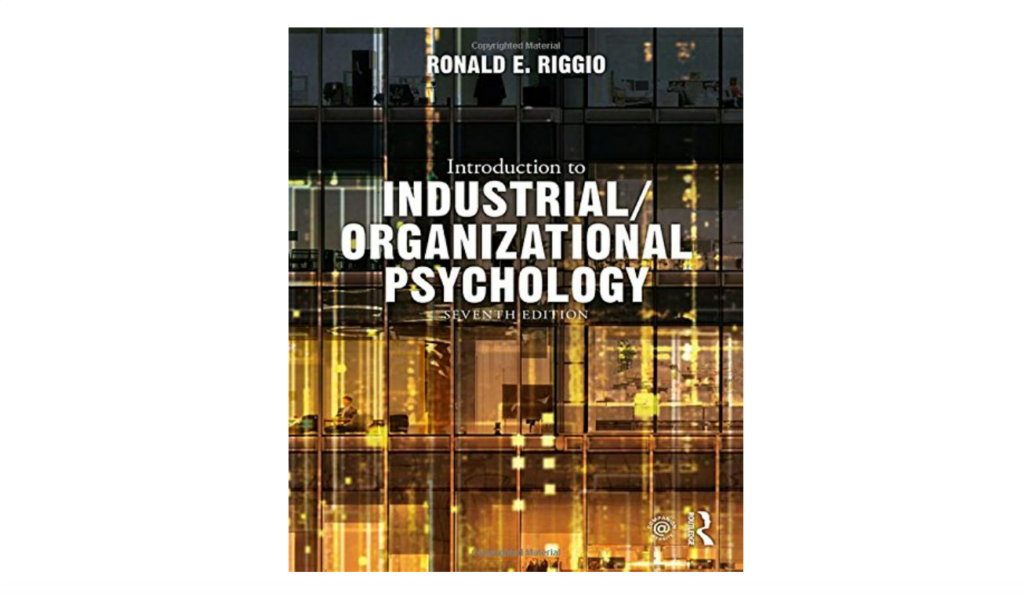
Summary:
Riggio's work serves as a foundational guide to the world of I/O psychology, encompassing both its historical roots and contemporary applications.
What You'll Learn:
Get an overview of the key concepts in I/O psychology, explore its evolution, and delve into the current practices and challenges shaping the field.
Why You Should Read It:
For anyone looking to step into the realm of I/O psychology or deepen their understanding, this book stands as a comprehensive starting point.
Quote From The Book:
"In the interplay of industry and organization lies the heart of I/O psychology."
About The Author:
Ronald E. Riggio is a respected academic and researcher in organizational psychology. Dive deeper into his insights on LinkedIn and through his personal website.
11. Organizational Culture and Leadership by Edgar H. Schein
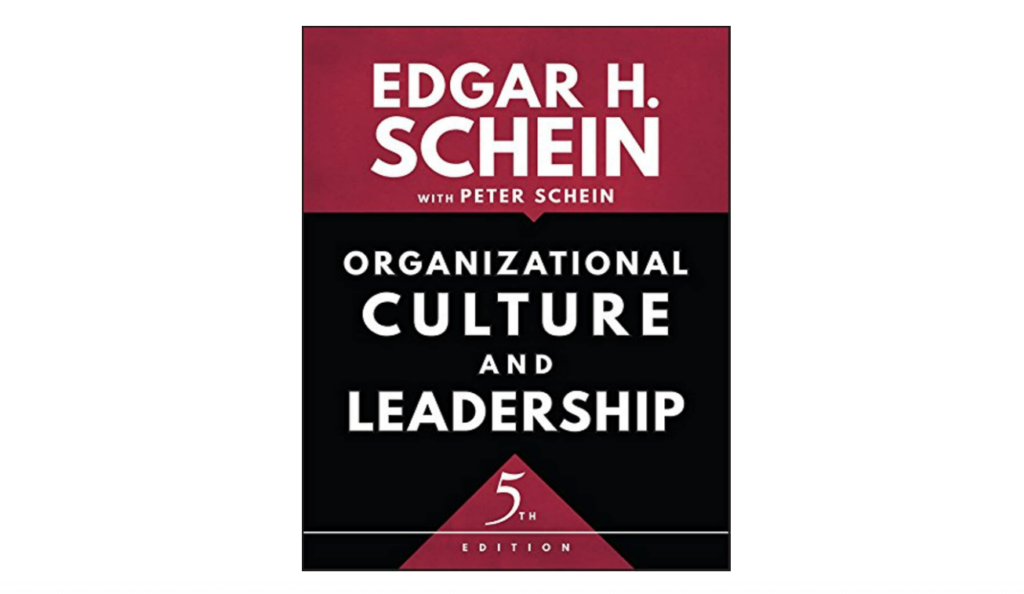
Summary:
Schein provides an in-depth exploration of organizational culture, dissecting its layers and emphasizing the role of leadership in shaping and transforming it.
What You'll Learn:
Discover the intricacies of organizational culture, understand its impact on businesses, and gain insights into the pivotal role of leadership in cultivating a positive and productive culture.
Why You Should Read It:
In the dynamic world of business, understanding the nuances of organizational culture and leadership is vital for sustained success.
Quote From The Book:
"Culture does not change because we desire to change it. Culture changes when the organization is transformed."
About The Author:
Edgar H. Schein, a luminary in the field of organizational development, has significantly influenced organizational psychology. Explore more about his works on Amazon.
12. The Fearless Organization: Creating Psychological Safety in the Workplace for Learning, Innovation, and Growth by Amy C. Edmondson
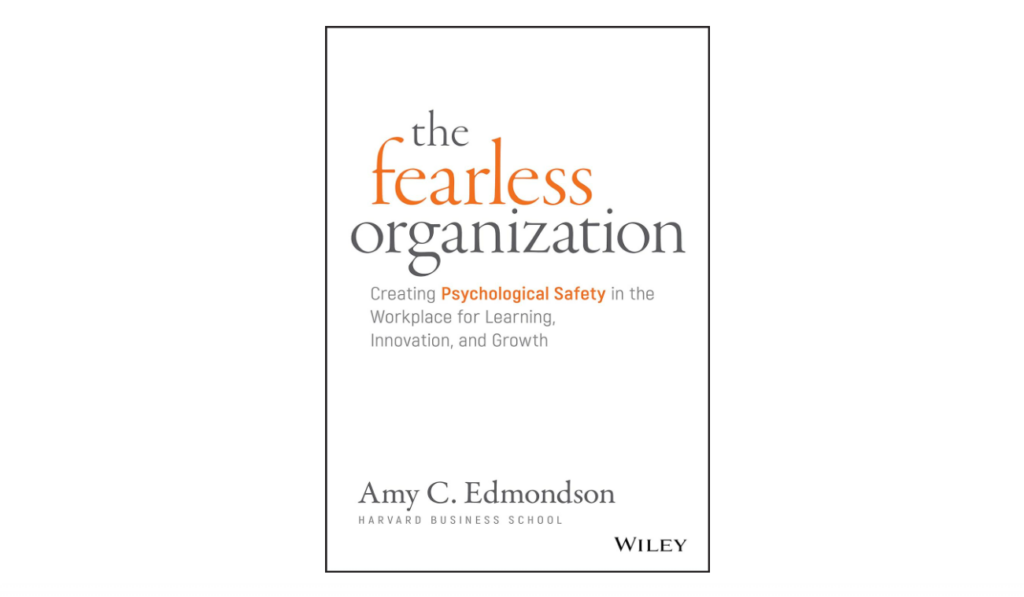
Summary:
Edmondson’s groundbreaking work emphasizes the concept of psychological safety in the workplace, highlighting its importance in fostering innovation, learning, and growth.
What You'll Learn:
Grasp the concept of psychological safety, understand its significance in organizational success, and learn strategies to create an environment where employees feel safe to voice ideas and concerns.
Why You Should Read It:
In the age of innovation, creating a psychologically safe environment is the key to unlocking an organization’s full potential.
Quote From The Book:
"Psychological safety is the bedrock for growth and innovation; without it, potential remains untapped."
About The Author:
Amy C. Edmondson is a renowned professor and expert in leadership and management. Engage with her insights on LinkedIn, Twitter, and her personal website.
13. The Social Psychology of Organizations by Daniel Katz and Robert L. Kahn
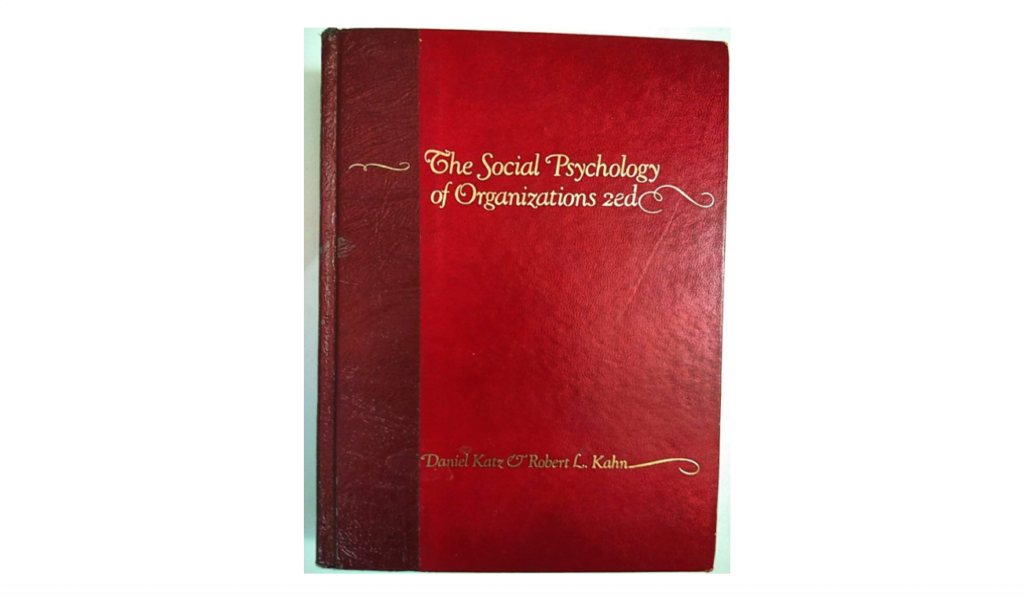
Summary:
Katz and Kahn delve into the intricate social dynamics at play within organizations. Their exploration uncovers the interplay between individual behavior and organizational structures.
What You'll Learn:
Explore the foundational principles of social psychology within organizations, uncover the relationship between individual behavior and systemic structures, and gain insights into the dynamics that drive organizational success.
Why You Should Read It:
To comprehend the deep-seated social interactions and their impact on organizations, this book stands as an essential read.
Quote From The Book:
"Organizations are living entities, shaped and driven by the social interactions within."
About The Author:
Daniel Katz and Robert L. Kahn have significantly contributed to our understanding of organizational behavior and social psychology.
14. Positive Psychology in Business: 101 Workplace Ideas and Applications by Sarah Lewis
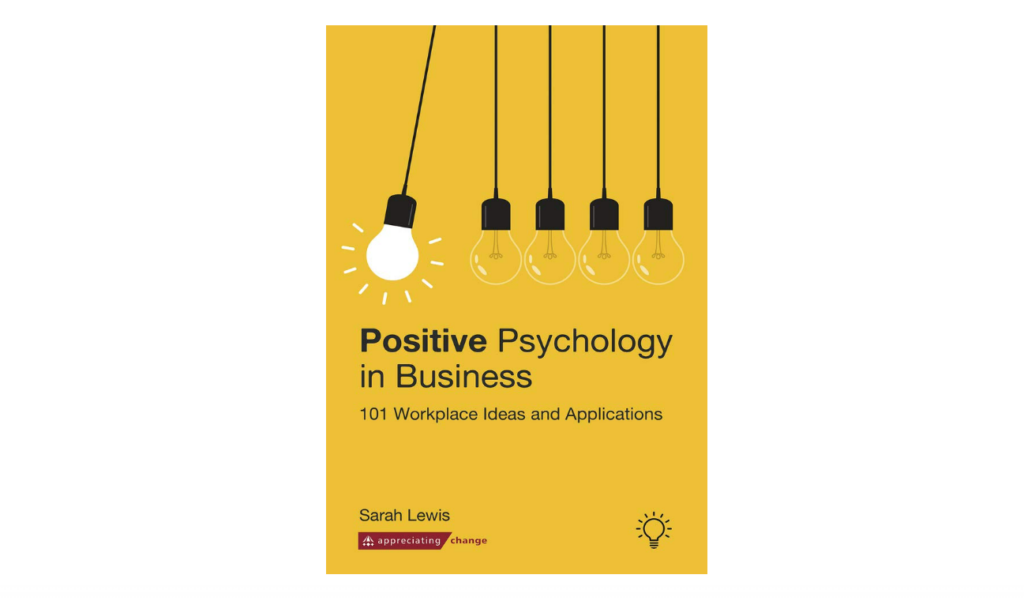
Summary:
Sarah Lewis brings forth a refreshing perspective on integrating positive psychology principles in business, highlighting actionable strategies to foster a more positive and productive workplace.
What You'll Learn:
Unearth the key tenets of positive psychology, discover how they can be applied in business settings, and get equipped with tools to create happier, more productive workplaces.
Why You Should Read It:
In the pursuit of organizational excellence, leveraging the power of positive psychology can be a game-changer.
Quote From The Book:
"Business thrives not just on metrics, but on the positive energies that propel it."
About The Author:
Sarah Lewis is an expert in positive organizational psychology and its application in business settings. Connect with her insights on LinkedIn and Twitter.
15. The Wiley Blackwell Handbook of the Psychology of Occupational Safety and Workplace Health by Sharon Clarke, Tahira M. Probst, Frank W. Guldenmund, and Jonathan Passmore
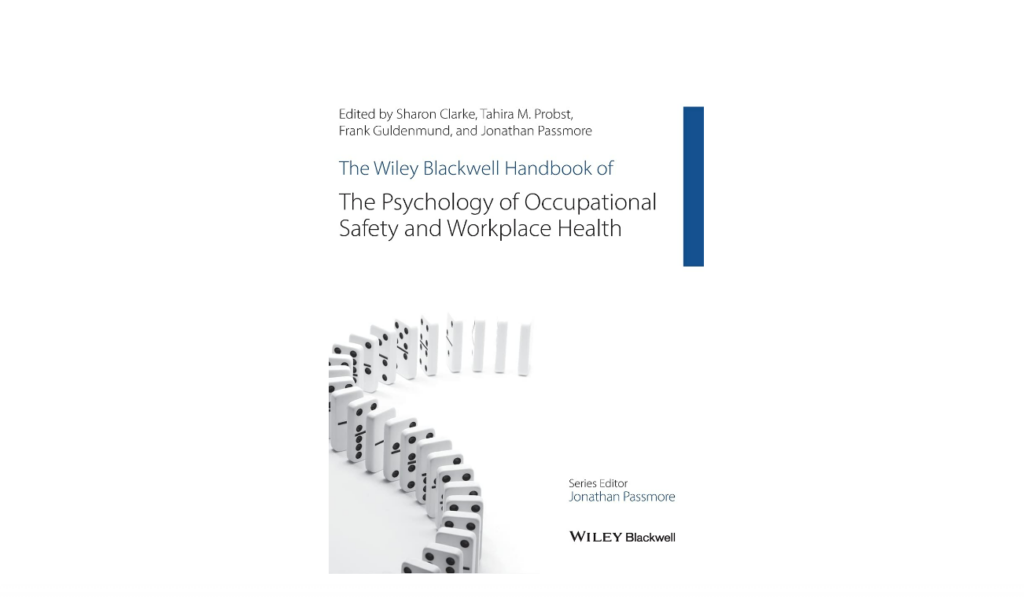
Summary:
This handbook offers a comprehensive exploration of the psychology of occupational safety and health, providing readers with deep insights and practical applications.
What You'll Learn:
Dive deep into research on occupational safety and health, uncover psychological factors affecting workplace well-being, and equip yourself with best practices to foster a safe and healthy work environment.
Why You Should Read It:
For professionals and enthusiasts alike, understanding the psychology behind occupational safety and health is pivotal for creating safer, more harmonious workplaces.
Quote From The Book:
"Workplace well-being is an intricate tapestry woven from safety, health, and psychological insights."
About The Author:
Sharon Clarke, Tahira M. Probst, Frank W. Guldenmund, and Jonathan Passmore are respected authorities in the realm of occupational psychology and safety. Engage further with Sharon Clarke on LinkedIn, Frank W. Guldenmund on LinkedIn, Tahira M. Probst on LinkedIn, and Jonathan Passmore on his personal website.
16. Ethics and Values in Industrial-Organizational Psychology by Joel Lefkowitz

Summary:
Lefkowitz's work is a deep dive into the ethical considerations and values that underpin the practice of industrial-organizational psychology, emphasizing the importance of ethical behavior in the field.
What You'll Learn:
Gain insights into the ethical dilemmas faced in I-O psychology, understand the foundational values guiding the practice, and discover tools and strategies to navigate complex ethical situations.
Why You Should Read It:
In the intricate world of I-O psychology, maintaining an ethical compass is paramount, and this book provides the necessary guidance.
Quote From The Book:
"In the realm of I-O psychology, values, and ethics are the guiding stars amidst challenges."
About The Author:
Joel Lefkowitz is an esteemed expert in industrial-organizational psychology with a focus on ethics. Connect with his insights and work on LinkedIn.
17. Personnel Psychology and Human Resources Management: A Reader for Students and Practitioners by Ivan T. Robertson and Cary Cooper
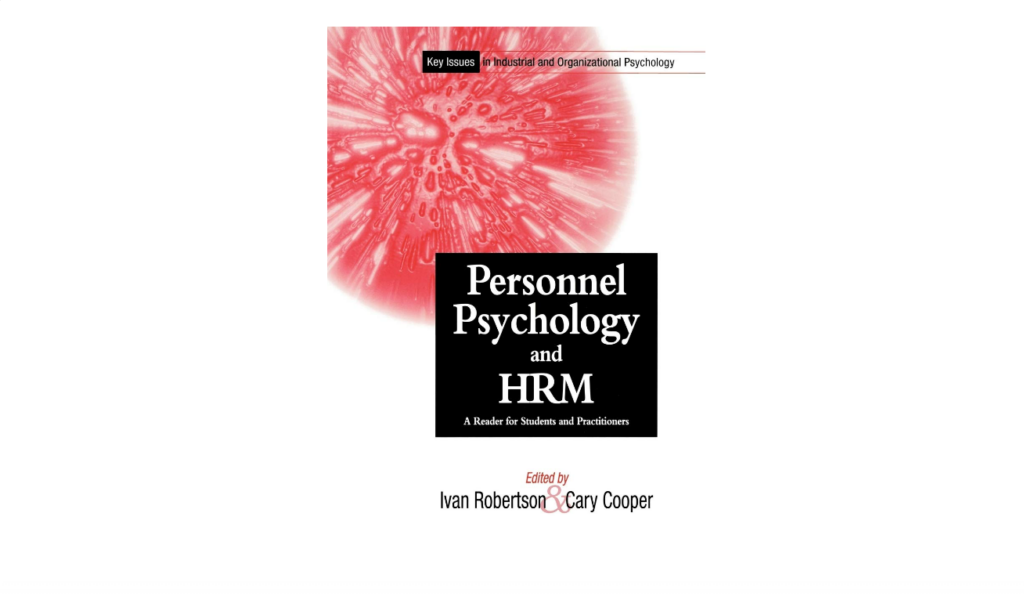
Summary:
Robertson and Cooper offer a comprehensive resource on personnel psychology and HR management. This book amalgamates theory with practical applications, catering to both students and professionals.
What You'll Learn:
Explore the key theories in personnel psychology, delve into best practices in human resource management, and understand the synergy between the two in optimizing workplace performance.
Why You Should Read It:
For anyone invested in the world of HR and personnel psychology, this book serves as a bridge between theory and real-world application.
Quote From The Book:
"The harmony of personnel psychology and HR practices is the cornerstone of organizational excellence."
About The Author:
Ivan T. Robertson and Cary Cooper are renowned figures in the field of personnel psychology and HR management. Engage further with Ivan T. Robertson on LinkedIn and Cary Cooper on LinkedIn, Twitter, and his personal website.
Which Organizational Psychology Books Do You Recommend?
While this compilation encompasses some of the pivotal organizational psychology books, the field is vast and ever-evolving. If you believe there's a standout title that should be on this list, please share your recommendations. Your insights will be invaluable in enriching this collection for all enthusiasts of organizational psychology.

